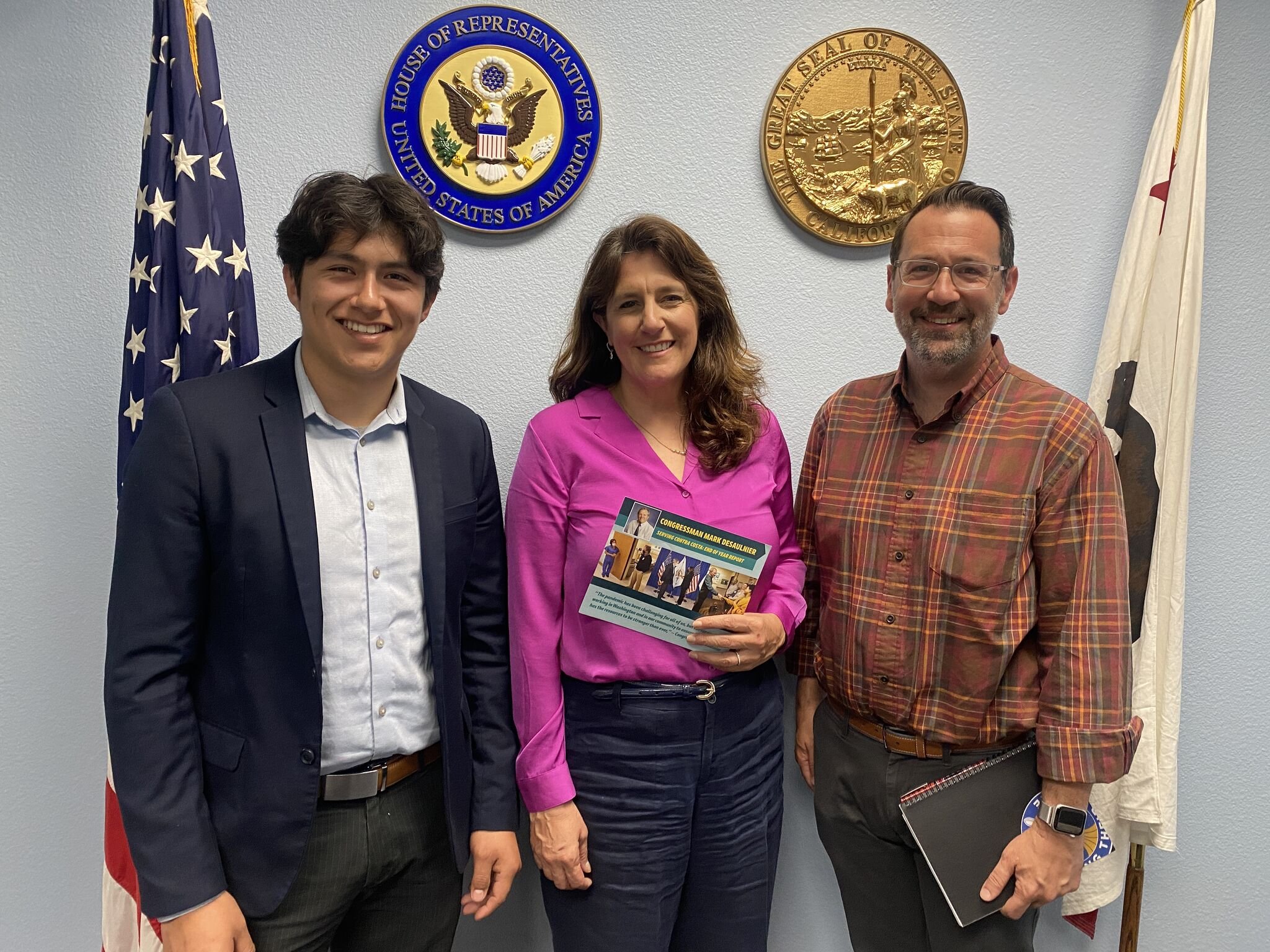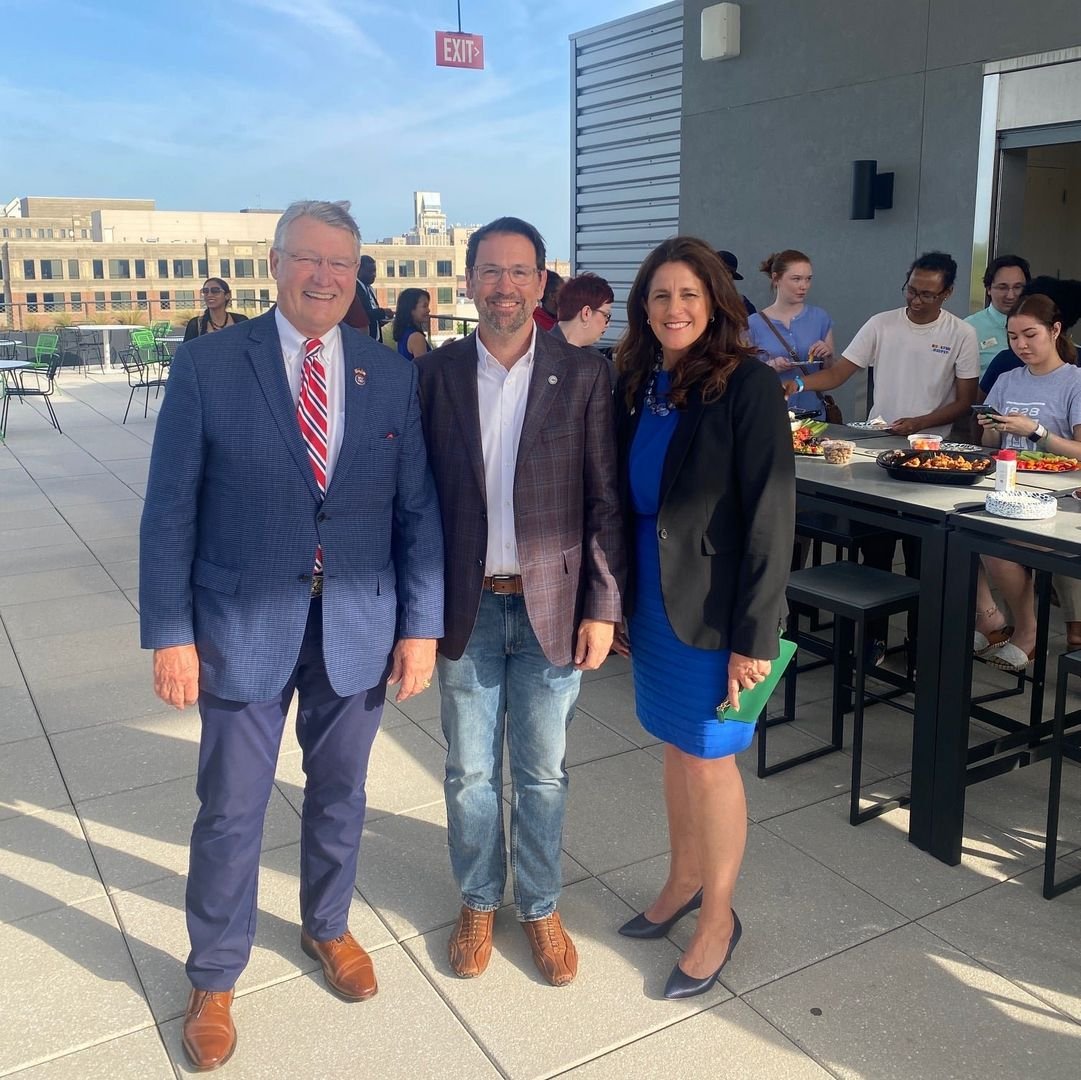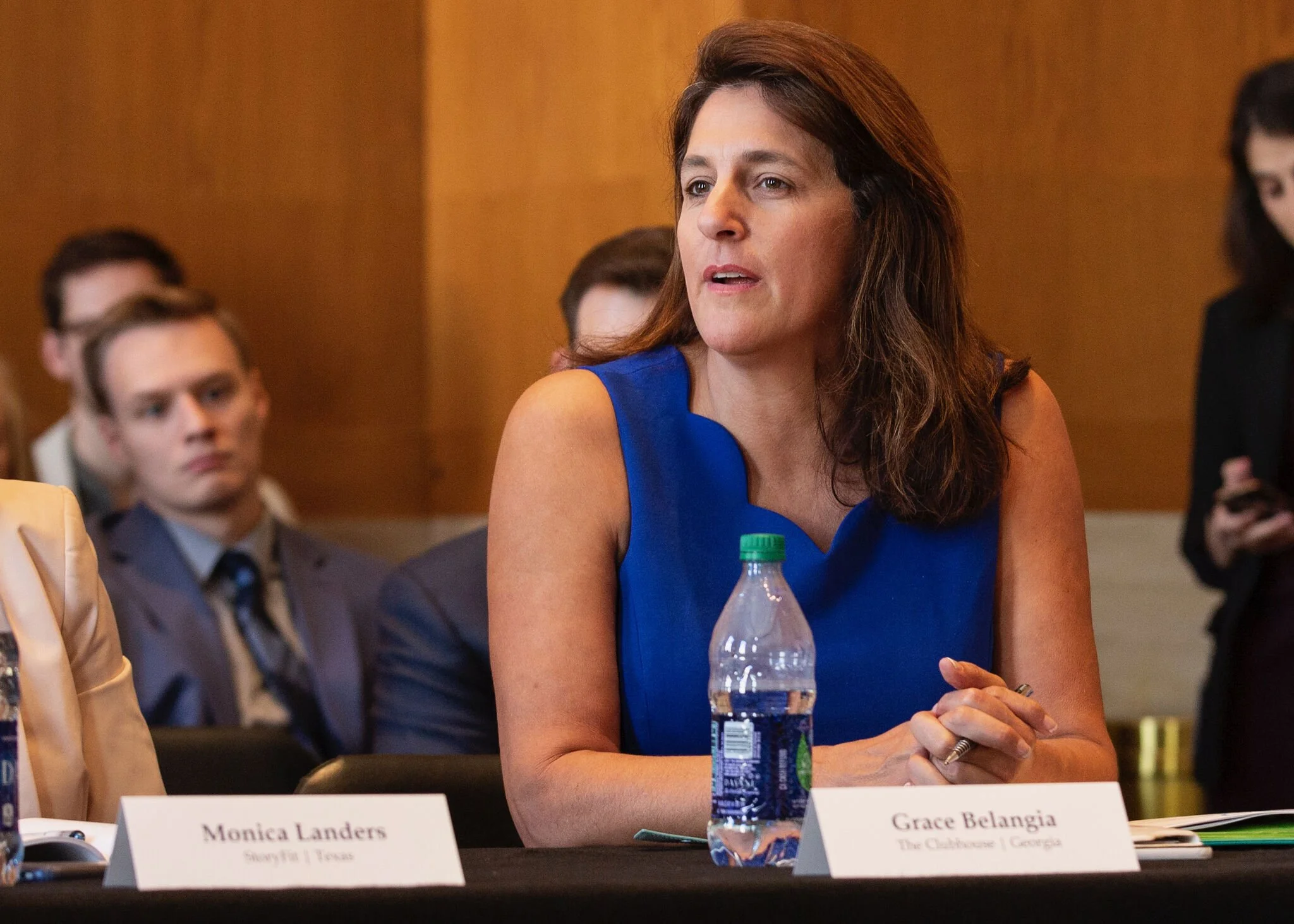When Eric Parker and Grace Belangia founded theClubhou.se 11 years ago, their goal was to increase entrepreneurial activity and innovation in Augusta, Georgia. In just over a decade, they’ve built a community around innovation, bolstering their local economy and helping their entrepreneurial ecosystem thrive. Through hundreds of events, coworking space, maker space, hacker space, and running coding schools, incubators, and accelerators they’ve supported 350 companies that have launched out of their space, created 1500 jobs, and helped startups raise $15M in capital. They started a nonprofit, diversified their business model, changed locations a few times, and evolved with one constant: supporting startups, entrepreneurs, and innovation.
“We started with this idea that innovation and entrepreneurship was something that could happen in any city in America or the world,” says Grace Belangia, CoFounder of theClubhou.se and Make Startups.
Beyond the startups and entrepreneurs they’ve supported, they’ve also helped change the entrepreneurial ecosystem in Augusta.
“We have had a hundred million investment from the state of Georgia in building a facility in downtown to help us and other organizations grow and there's been a focused conversation about growing an innovation ecosystem. There is an angel investor network in our community now that did not exist when we began. We've gotten to the point where our Chamber of Commerce no longer says that we don't have a startup community and there's no vision for how we would have a startup community. On the intangible side, there's a legitimate community that supports each other. I don't think people feel like entrepreneurship is outside of the realm of pathways they can choose if they live in Augusta, Georgia, whereas before they would've thought, I need to go get a job at the nuclear plant or at Savannah River Site (Dept. of Energy) or work for the university. Even in the last couple of years, we're finally having a focused conversation where our banks are asking, how can we better support entrepreneurs? The whole ecosystem has successfully shifted the mindset that Augusta can be a place where entrepreneurs succeed,” says Eric Parker, cofounder of theClubhou.se and Make Startups.
All this success hasn’t gone unnoticed. People outside the ecosystem have started asking for help, which launched an entirely new focus and business using the approaches they used to build the community in Augusta.
“It initially began because Grace and I had so many communities across the southeast that were seeing what we were doing and asking us to help. We were going to cities and trying to help them figure out how they can make startups, and that was why we called our organization Make Startups,” explains Eric.
“There are hundreds of cities like Augusta around the country and what would it look like if they too were able to tap into those resources? How would Make Startups work with them to make that happen?” says Grace.
Right before the pandemic hit, they had an aha moment.
“We realized that workforce development is written in such a way that it also is supposed to support entrepreneurs, but it doesn't. There's a lot of bias that exists within the workforce development system, and so we set out to build a workforce compliant entrepreneurship program,” says Eric.
Once the program officially launched and they gained approval in four states, they ran into other operational challenges. Navigating those challenges led to the discovery of funding opportunities that while existed, were difficult to get.
“Understanding the economic development space and what it looks like from the federal level down to the state and local level made us realize there were untapped financial resources available for organizations like ours that could and should be supporting entrepreneurs. There's actual legislation written that supports entrepreneurship but there’s also legislation that doesn't seem to support entrepreneurship. There are also different levels of funding from the Department of Labor or the Commerce Department that would tap into finances and money available for organizations like ours to help entrepreneurs, especially those that have been marginalized and historically disadvantaged,” says Grace.
And so they got to work as advocates to expose those barriers and opportunities.
“We began writing policy papers on what the administrative roadblocks we were hitting were, and started sharing those with our local members of congress, as well as with other networks. When Jason Weins was with the Kauffman Foundation, he introduced me to a number of organizations in D.C., one of them being the Center for American Entrepreneurship. They helped me build a few relationships at Capitol Hill. And so I did what any entrepreneur would do: I hopped on a plane one day to DC and set up meetings with staffers in all of the different House and Senate offices that were sitting on the committees around it. After doing that for six months to a year, we managed to get a piece of legislation drafted and it was proposed last year in a session of Congress,” explains Eric.
The piece of legislation he’s referring to is The Startup Act. While it didn’t get passed, it is being resubmitted this year as Grace and Eric gather broader support for this bipartisan bill.
The Startup Act
The Startup Act aims to encourage the growth of new businesses, specifically entrepreneurs who have been historically excluded and/or are facing poverty. This piece of legislation amends the Workforce Innovation Opportunity Act to reduce barriers that entrepreneurs face, and improve access to training and support services from our workforce development system. It also authorizes the Department of Labor (DOL) to conduct a three-year, multi-state study to review the outcomes of these programs and report its findings to Congress.
Entrepreneurial skills training is already authorized by legislation, however, in order to unlock funds you must have approval from your local workforce board. It’s also very difficult for most training programs to satisfy the industry recognized credential requirements.
Make Startups has endorsements from organizations in 14 states so far and there are four states with a Make Startups program approved on the state workforce board. Anyone who wants to support the Startup Act can go the their website and click on the endorse button. This helps them keep an updated list for Congress with organizations and states so they know who from their representation is interested and engaged on the local level. You can also write a letter of support to your congressperson and share why entrepreneurship is important, there are resources on the page to do so, including data to support your efforts and a template letter.
Be an advocate on your Workforce Board
Beyond getting legislation re-written to support enrtepreneurship, there’s a bigger advocacy piece to this work. In order to unlock funds from workforce development, you need local workforce board support.
“I highly recommend trying to get a seat on the workforce board itself. That's where funds are administered. The money that's funneled down through the state can be discretionary within that local workforce board. Local workforce boards are usually appointed by local officials. And so you’ll need to figure out who's on your workforce board and or get on the workforce board in order to have more say in how that money is being allocated at the community level,” Grace explains.
“One of the things Grace and I do with Make Startups is come to communities and help develop the plan to get local and state workforce approval. We'll work with you, your workforce director, your state workforce board, and your finance industry - whether that happens to be your bankers or your VCs, or both - to put the plan together so that you can get the approval at each one of those levels,” says Eric.
Entrepreneurship skills development
The Right to Start Act changes the legislation to ensure government funds go towards entrepreneurship support for disadvantaged entrepreneurs. The workforce board advocacy ensures that money flows from the federal to the state to your local ecosystem. But where does that money go? Here’s the third, underlying piece to the work of Make Startups: developing skills and proficiencies, setting standards of practice, and creating a pipeline of entrepreneurial activity.
At the end of the day, Entrepreneurship is a skill. Unless you have an MBA or you went to school for entrepreneurship, you need help developing that skill. Make Startups has taken the work they did in Augusta and translated it into programs that can be implemented in any ecosystem to support its entrepreneurs.
“There's this misconception that the world of startups is all about the people in the dorm rooms with their hoodies cranking out code, building the next unicorn. But the reality is that the majority of entrepreneurs are people pursuing their dream and sacrificing everything they can to make it happen. In a community like Augusta, 30 to 40% of those people are facing poverty, and can't afford to take the risks involved in entrepreneurship. That's why entrepreneurship rates lag so much in our communities,” says Eric.
Make Startups has a Workforce Opportunity Calculator anyone can use that estimates the number of disadvantaged entrepreneurs in your county, and shows the potential impact of adult and dislocated workforce training programs.
SCN Policy Summit
Eric and Grace are both on the SCN Policy Summit Planning Team and have been connecting us to key speakers, as well as developing sessions. They organized the private tour of the Capitol Building with Congressman Rick W. Allen (happening the evening before the summit), and are hosting a workshop on Wednesday around the workforce development system and how to unlock funds in your ecosystem. They will also unveil a rubric they’re developing that can score every state's workforce system on how well it supports entrepreneurs.
“This is democracy at work. Dare I say it’s your civic duty to get involved? The next year is an election year and this is a really good bipartisan way to get involved. Everybody wants economic growth and prosperity; everybody wants job creation. There's too much contentiousness in our politics. I’m excited about this because I believe this is one of the things that would get people from all walks of life to agree with you,” says Grace.






